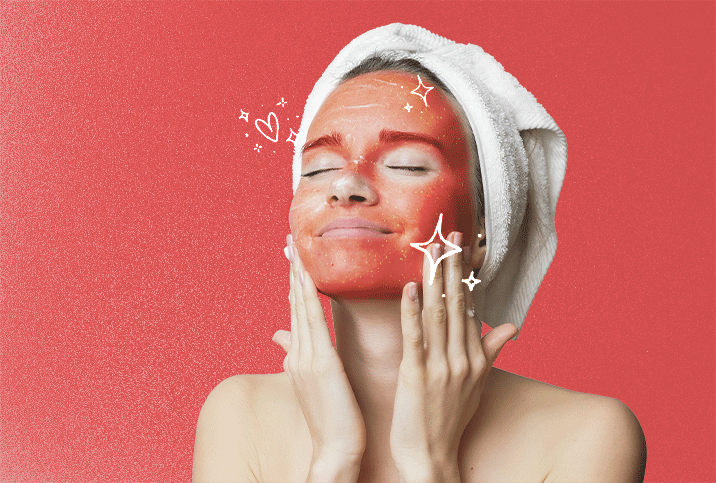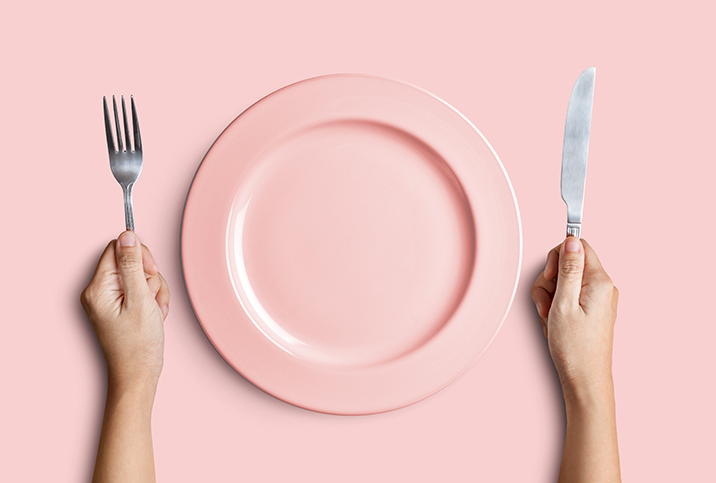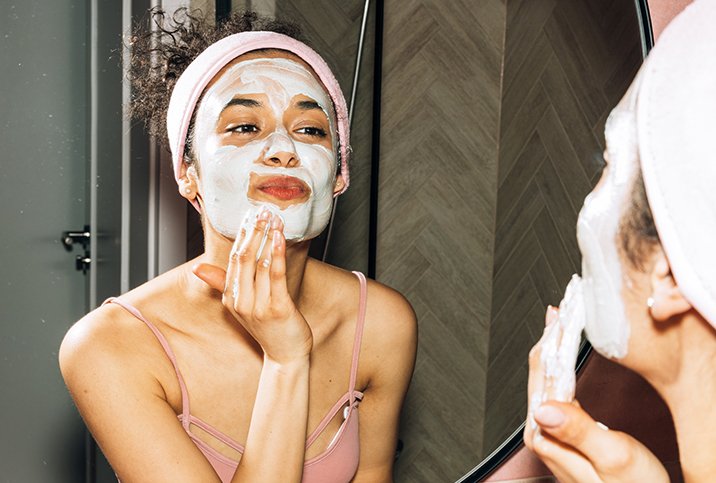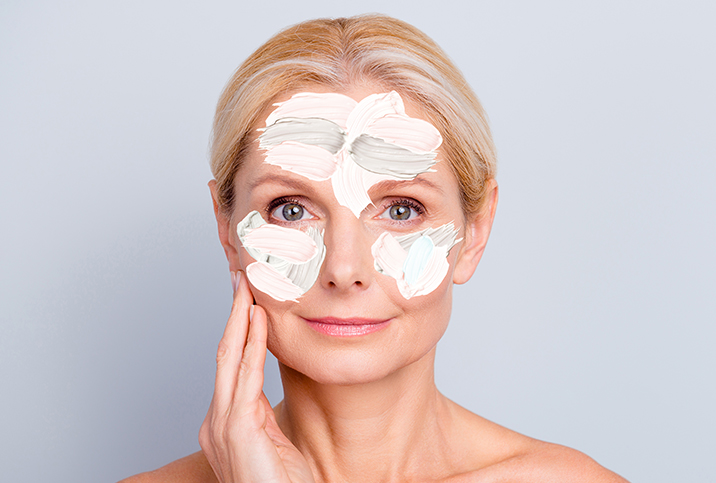You Should Really Avoid the Period Blood Face Mask Trend

Period blood masks are one of the latest beauty trends in skincare. Proponents of this treatment claim menstrual blood nourishes skin, clears acne and offers a host of other benefits. But in reality, there is no evidence to support this, and moisturizing with period blood could instead lead to a number of skincare problems, including infection.
We talked with an OB-GYN and a skincare specialist to learn more about this fad. Here's what they want you to know before you start saving the contents of your next menstrual cup for an at-home facial.
What exactly is a period blood mask?
A menstrual blood mask is precisely what it sounds like: using period blood on your face for a mask. Typically, a menstrual cup is used to collect the blood, which is either immediately applied to the face or stored in a jar in the refrigerator for later use. The blood is then smeared on the face and left to dry, much like a mud mask, though the consistency is thinner because period blood is more watery.
What's actually in period blood?
Kecia Gaither, M.D., M.P.H., double board-certified in OB-GYN and Maternal-Fetal Medicine, explained that the hype surrounding period blood masks comes from the elements present in blood. Blood is rich in stem cells, magnesium, zinc and fluid, and this has led some to believe, without evidence, that period blood can hydrate and nourish skin cells.
But, as Gaither warned, these aren't the only things present in period blood. "While menstrual blood in the uterus is sterile, once it's in the vagina/perianal region, it becomes engulfed with bacteria," she explained. That bacteria is what causes the strong odor often present in period blood—making it even more unpleasant to put on your face.
What are the risks associated with covering your face in menstrual blood?
Alexis Parcells, M.D., is a board-certified plastic surgeon and founder of SUNNIE Wrinkle Reducing Studio. Parcells explained that it would be challenging to extract menstrual blood hygienically because it contains cellular debris, such as endometrial cells, blood vessels and mucus, all of which your uterus sheds. Most importantly, the blood itself is inflammatory and may contribute to undesirable side effects.
There is the misconception that period blood is entirely pure and this is not true.
Parcells pointed out that there is a definite risk of transferring disease from the genitals to the face. "If a woman is infected with human papillomavirus (HPV) or herpes simplex, menstrual blood could potentially serve as a means for transmitting these viruses to facial skin," she said.
Additionally, period blood taken from pads is contaminated with sweat and bacteria, and therefore is not safe to use on skin, Parcells said. But even if you're using a menstrual cup, it still has dead cells and irritants, including white blood cells, which will harm your skin. Any open cuts, abrasions or lesions on the face provide an opportunity for infection, Gaither added.
So, how likely is it to offer any type of skin renewal?
Both Gaither and Parcells were adamant that any of the claimed benefits of period blood masking are strictly theoretical.
There is the misconception that period blood is entirely pure, explained Parcells, and this is not true. The host of benefits claimed to be offered by menstrual masking is based on "pseudoscientific misinformation," she said. There is no scientific evidence to support the use of menstrual blood as a mask. Gaither also emphasized the complete lack of evidence regarding menstrual blood's supposed "healing properties."
Experts agree the risks of using period blood as a mask, including STI transmission and other types of skin infections, far outweigh any theoretical benefits.


















